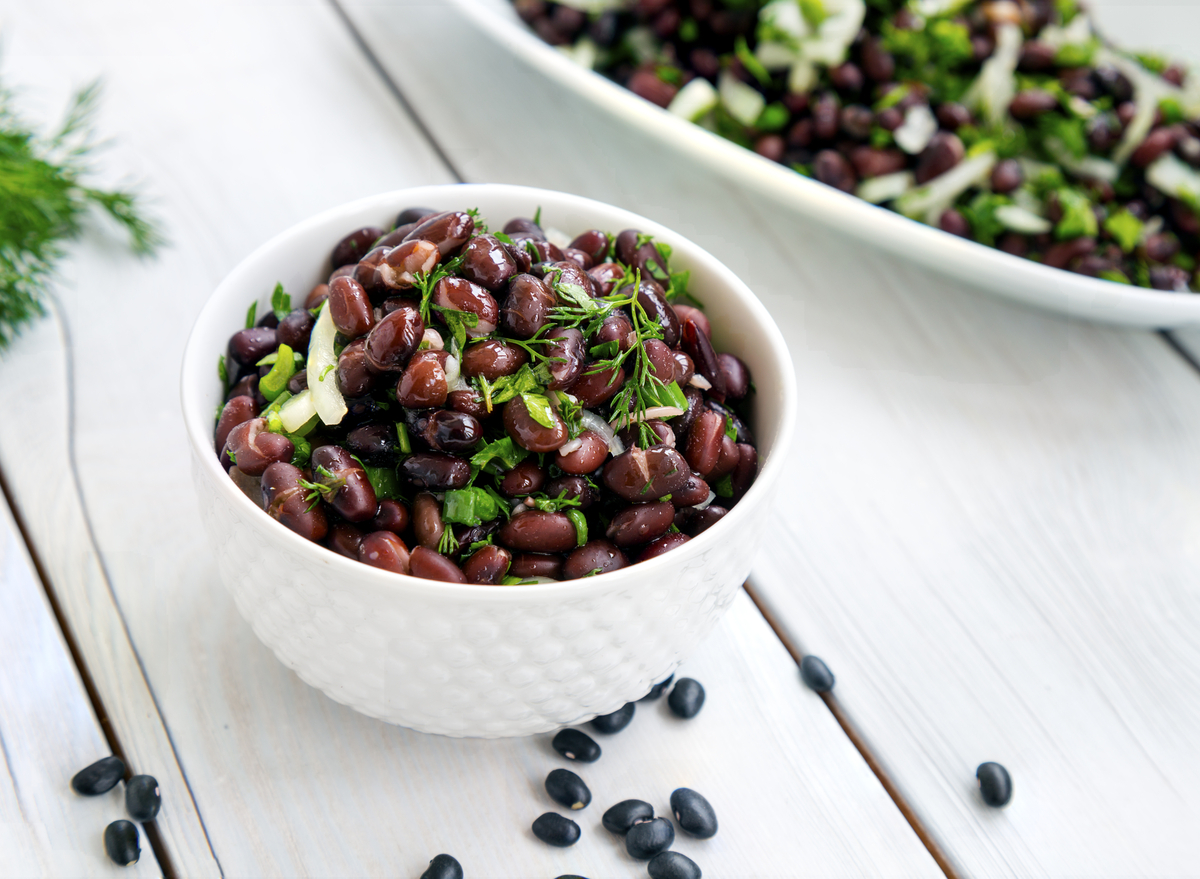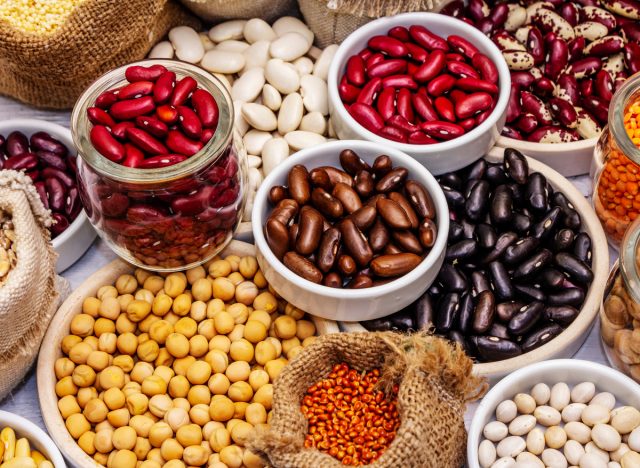The #1 Best Protein to Eat for Your Heart, Says Dietitian

Proteins are considered the building blocks of life. As one of the three main macronutrients (alongside carbohydrates and fat), protein is used in large amounts, as it plays a critical role in a range of bodily functions.
From repairing and building tissue to increasing muscle mass and promoting bone health, protein is an essential part of a healthy diet. However, there's a common misconception that Americans aren't getting enough of it. On the contrary, most Americans consume twice as much protein as they need, with The American Heart Association stating that "often the extra protein is coming from meats high in saturated fats."
It's no secret that eating too much of this protein can have a negative impact on your health—particularly your heart health. This raises the question: what's the best option?
According to our medical expert board member Lauren Manaker, MS, RDN, LDN, the best protein for your heart is beans. Read on to discover how beans can boost your heart health, and for more healthy eating tips, check out the 5 Best Low-Sodium Recipes to Reduce Heart Disease Risk.

How do beans affect your heart?
"Not only do these plant-based protein foods pack a punch in the protein department, but they also provide fiber, vitamins, minerals, and antioxidants that can support heart health," Manaker says.
In fact, in a 2019 review published in Advances in Nutrition, researchers found that participants who consumed the most legumes and pulses experienced a decrease in the incidence of coronary heart disease (10%), hypertension (9%), and cardiovascular disease (8%).
To add to the list of heart health benefits, eating beans has also been found to help lower cholesterol.
"The soluble fiber found in beans can quite literally inhibit cholesterol from being absorbed by the body," Manaker says.
In an analysis of 26 U.S. and Canadian studies, researchers found that participants who ate approximately one serving (3/4 cup) of legumes per day experienced a decrease in low-density lipoprotein (LDL)—or "bad" cholesterol—by 5%.
How much should I consume?
The U.S. Dietary Guidelines for Americans recommend that adults eat about three cups of legumes— including beans—per week. This breaks down to about half a cup of beans every day.
Looking to incorporate beans into your diet but aren't sure where to start? Check out 17 Recipes You Can Make With a Can of Beans.









